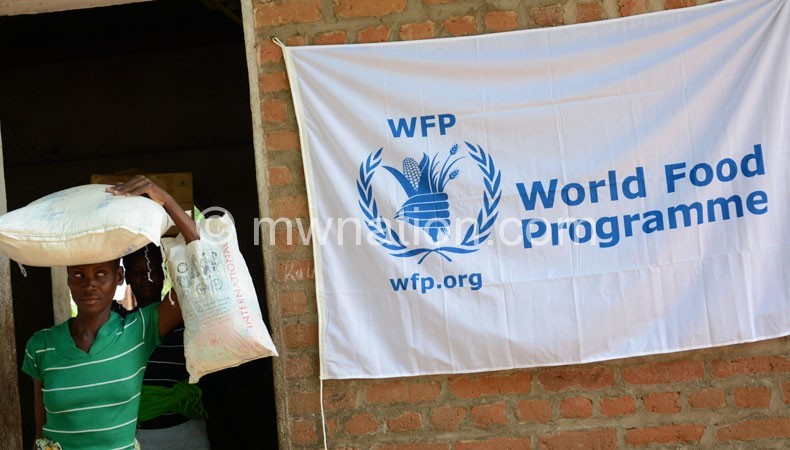More support needed to improve livelihoods in camps
The only money that he managed to take along as he ran for safety was K8 000. He used it to pay medical bills for his two children who had been diagnosed with malaria on arrival at Sekeni Refugee Camp in Chikwawa.
But now, after few weeks living in the camp, James Mpotazinga and other flood victims are worried that the quantity of food being distributed is insufficient. They do not have money to supplement their food. The family network has been broken with no available relations to give them a helping hand.
 Mpotazinga stayed in the village to look after his chicken and goats that survived the flood, only to sell them and follow his wife for a life he is not sure about.
Mpotazinga stayed in the village to look after his chicken and goats that survived the flood, only to sell them and follow his wife for a life he is not sure about.
“I heard that my children were sick, so I decided to sell the remaining animals and follow my wife and children here in the camp,” he says.
Mpotazinga also says it is unfortunate that their homes and all they worked for over the years is now history.
“What do you expect one to do in such a situation? I thank God we are still alive,” Mpotazinga says.
He is indeed lucky. Some, such as 13-year-old Bertha, have lost family members to the floods. Bertha is now in-charge of her two younger sisters after their mother died in the floods.
She, her sisters and 29 other survivors share a tent that is meant to accommodate only four people.
In Nsanje, Phalombe and Chikwawa districts alone, over 300 000 people have been displaced and are either in camps or being accommodated by their relations in other villages.
More people are still seeking refuge at the camps, but the available accommodation, food, mosquito nets and water are not enough for all of them.
“I gave away my mosquito net to one of the women who came yesterday,” said Mpotazinga: “Her child cried all night and in the morning, the baby had mosquito bites all over her face.”
A couple of tents away from Mpotazinga are women on a queue, receiving their family’s food rations for the day.
Just next to the queue is a woman who with a friend is preparing a joint meal for the day.
One of the women says the food rations are not enough.
“To survive, we eat once a day at sunset so that our children can find some sleep at night,” she says.
Since he arrived at the camp mid January, Mpotazinga and his family have been eating nsima once a day.
His wife Malita says they are given food based on their villages, and in the end, every household gets less than a plateful of maize flour, a cup each of beans and soy for an entire family.
The little food Mpotazinga and his children are living on is part of the maize flour that World Vision Malawi, Malawi Government and other players have donated to people displaced by the floods.
“We are grateful to World Vision and other organisations for the food donated,” Mpotazinga says.
However, more people are coming to the camps and the need for more support is increasing.
“We need food, more tents, mosquito nets and other supplies for children and mothers camping all over the district,” begs Mpotazinga.
Elisha Kapalamula, World Vision commodities manager, says his organisation is distributing maize, beans, and other non-food items to the displaced people in the camps.





